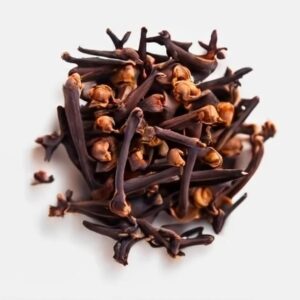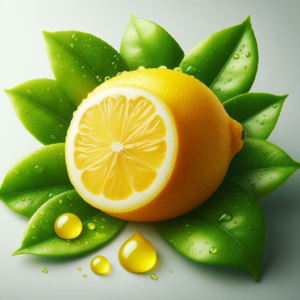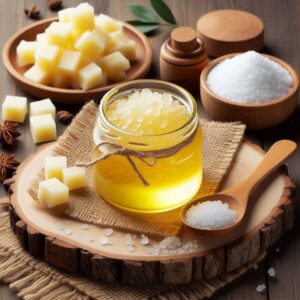Kewada oil, also known as kewra or keora oil, is derived from the male flower of the fragrant screwpine plant. It offers a range of health and wellness benefits:
- Aromatic Therapy: Kewada oil is renowned for its pleasant aroma, making it a common ingredient in perfumes, room fresheners, and aromatic therapies. Its calming scent can help reduce stress and anxiety, promoting relaxation and mental well-being.
- Digestive Aid: Consuming kewada oil in moderation can aid digestion. It is believed to stimulate the production of digestive enzymes, thereby improving digestion and relieving symptoms like bloating and indigestion.
- Cooling Properties: In hot climates, kewada oil is used to cool the body. It is often added to beverages like lassi (a yoghurt-based drink) or sherbet (a sweet drink) to provide a refreshing and cooling effect during summer.
- Anti-inflammatory: Kewada oil contains compounds that exhibit anti-inflammatory properties. Using it externally or consuming it in diluted form may help reduce inflammation in the body, easing conditions like arthritis and joint pain.
- Antioxidant-Rich: Rich in antioxidants, kewada oil helps combat free radicals and oxidative stress in the body. Regular consumption may contribute to overall health by protecting cells from damage and lowering the risk of chronic diseases.
- Respiratory Benefits: In traditional medicine, kewada oil is used to alleviate respiratory issues such as coughs, colds, and congestion.
- Skin Benefits: Kewada oil is known for its skin-fortifying compounds, antioxidants, and phytonutrients. It supplies a cooling effect to tone the face and remedies skin infections owing to its anti-inflammatory traits.
Incorporating kewada oil into your lifestyle can contribute to overall health and well-being.
This oil best for the meditation on Anhata chakra i.e. Heart Chakra.
The use of essential oil:
• Through smell – Aromatic use of essential oils includes diffusing in an essential oil diffuser, applying a drop to your hands and inhaling, wearing as a personal fragrance.
• On your Skin – You can use essential oils on your skin by incorporating them into a massage, applying to targeted areas, adding to lotions or moisturizer
• Remember to always dilute essential oils properly before using them on the skin and to perform a patch test to check for any allergic reactions. Additionally, consult with a healthcare professional before using Hibiscus essential oil, especially if you have any underlying health conditions or are pregnant.
Caution: People having allergy with natural essential oil should avoid direction inhalation. Keep away from direct sunlight. Keep away from children’s. For External Use Only, not to be indigested.












Reviews
There are no reviews yet.